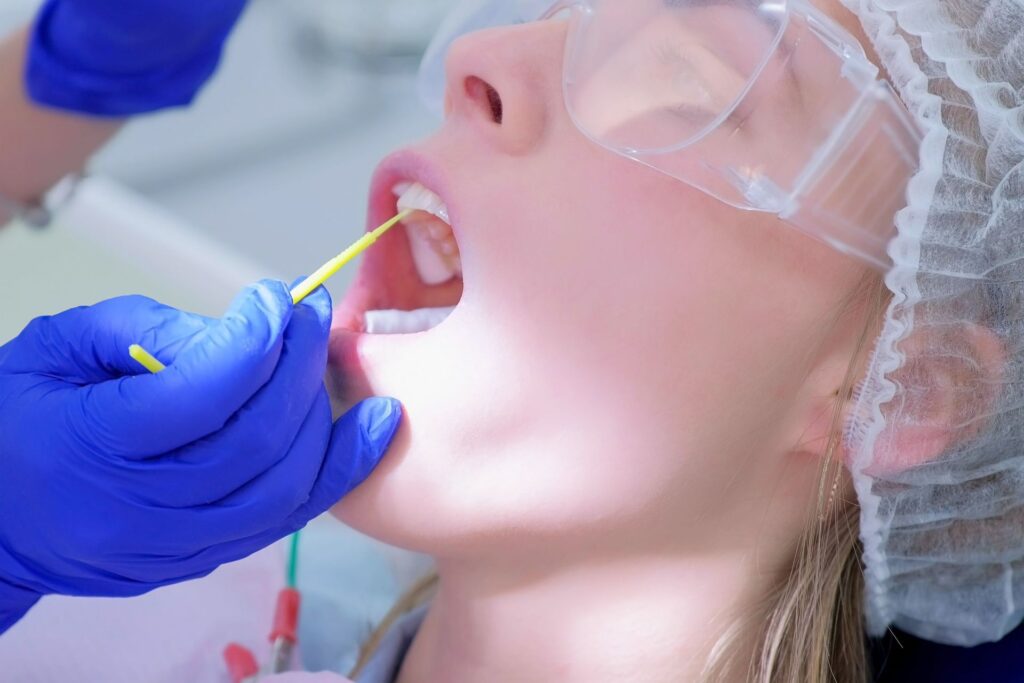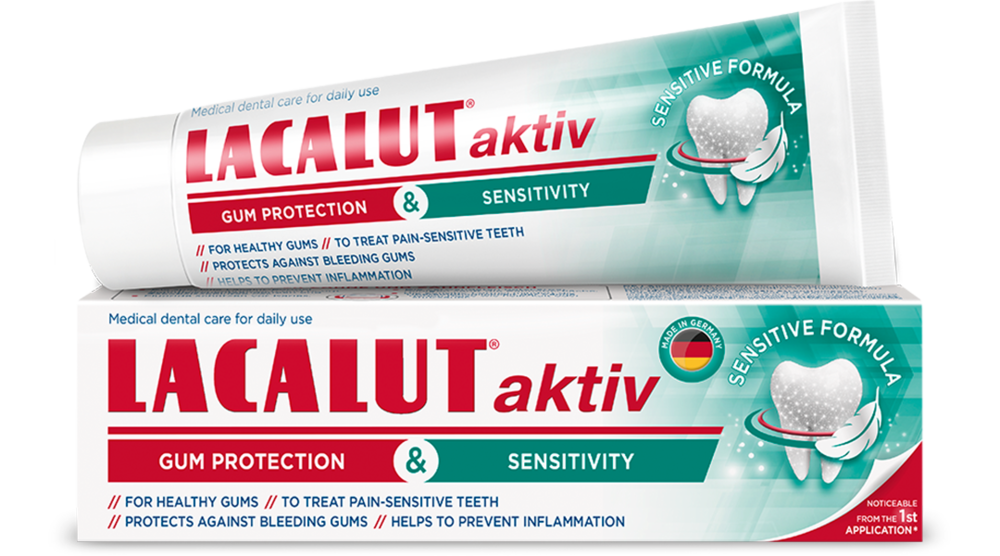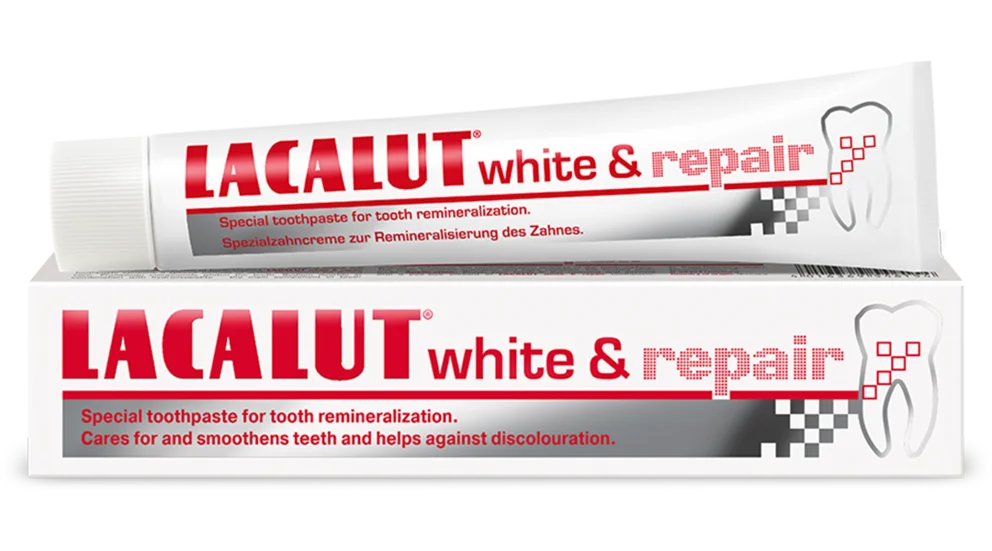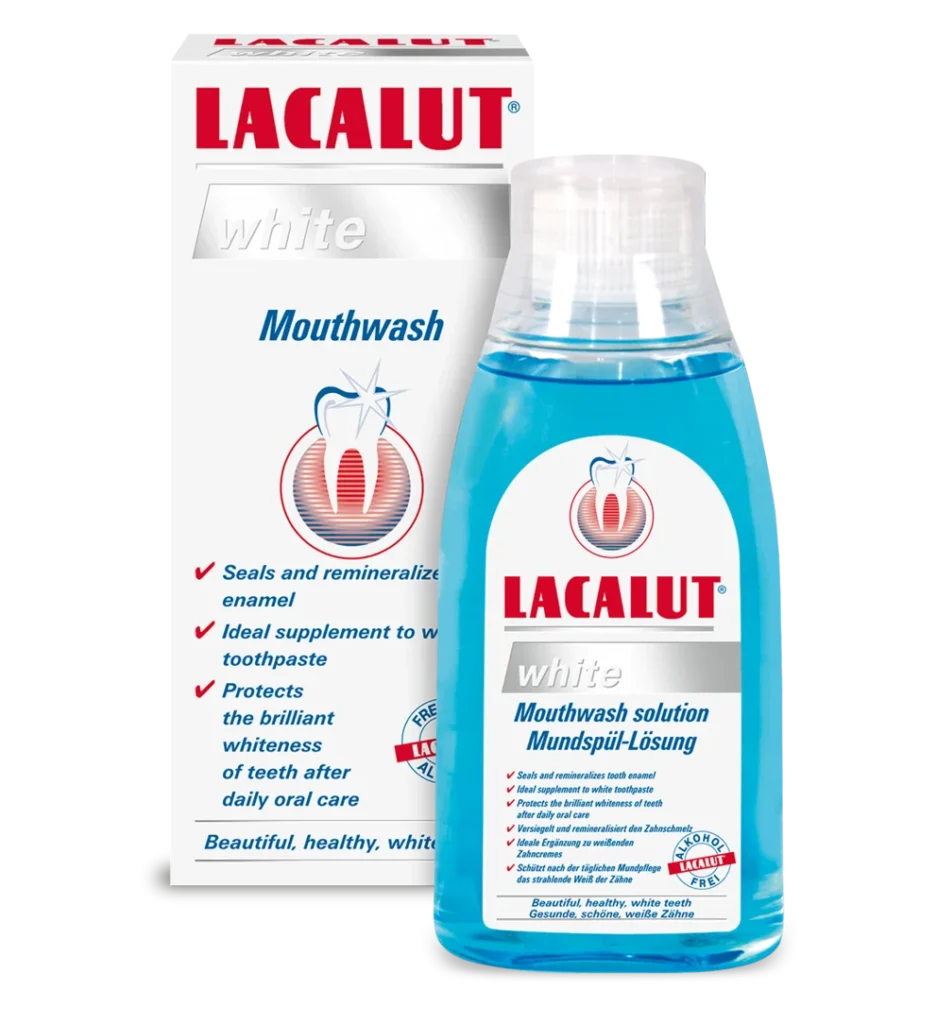TEETH PROBLEMS
Banish the pain: What sensitive teeth need
It is not unusual to feel an unpleasant pulling sensation in the teeth. Almost one in three of us suffer from sensitive teeth. However, even small, everyday changes can make a difference.
The coffee is too hot, the ice cream too cold and the treats too sweet if you feel a pain in your teeth that feels like lightning every time you try to enjoy them. This can even happen when a sharp gust of wind knocks your teeth while you're out walking. This is what doctors describe as sensitive teeth or dentin hypersensitivity. Almost every second to third German suffers from it, and it often affects not just one but many teeth. Exposed tooth necks are usually responsible for increased sensitivity to pain.
Our product recommendations
Teeth sensitive to pain: Know the causes
The necks of the teeth are normally covered by the gums and are therefore well protected from heat, cold, sweet or sour foods and this shielding is very necessary because the necks of the teeth are covered by thousands of small canals (medically known as: dentinal tubules) which transmit stimuli directly to the dental nerve. If the gums recede, the necks of the teeth are exposed and the teeth become increasingly sensitive. For some patients, their teeth are so sensitive that they fear the dentist's tools or the water-air jet because any contact with the teeth causes a flash of pain. But it doesn't have to go that far, anyone who knows the causes of sensitive teeth can prevent the symptoms:
- Incorrect cleaning technique. Even if it's well-intentioned, brushing your teeth for too long and too vigorously can damage them. Anyone who consistently goes beyond the recommended three minutes does not remove more plaque, but rather runs the risk of injuring the gums, especially around the neck of the teeth. The former then recede further. Grinding hard can also wear away the protective enamel of the teeth.
- Inflammation. A common cause of sensitive teeth is periodontitis. This inflammation of the periodontium is caused by bacteria and poor or incorrect oral hygiene. In this case, the gums become swollen, red and bleed more easily when you brush your teeth. If the disease is left untreated, the gums recede and expose the sensitive necks of the teeth.
- Grinding of teeth. During the night, when you grind your teeth (medically known as: bruxism), the forces acting on the teeth are up to ten times greater than when chewing. Doctors suspect that this may then result in wedge-shaped defects in the neck area of the teeth, which then cause the teeth to become more sensitive.
- Food. Acidic foods and drinks such as juices, lemonade or wine attack tooth enamel. The acid demineralizes the enamel and reduces its protective function.
Sensitive teeth – this is what your dentist can do
Pain-sensitive teeth are very uncomfortable and can interfere with daily life. However, many patients endure the pulling sensation in the mouth or hope that it will go away on its own. However, it is best to consult a dentist – especially if the gums are bleeding or receding gums are recognizable even to a layman. The specialist will then decide which treatment is appropriate. If the necks of the teeth are exposed, they can be sealed with a clear fluoride varnish. The application closes the fine channels and prevents the transmission of pain. Wedge-shaped defects in the neck of the tooth, such as those caused by grinding at night, can be covered by the dentist with a nearly invisible plastic. In the case of periodontitis, the dentist will once again explain in detail proper oral hygiene, clean the gum pockets and remove any tartar. Antibiotics are also required in some cases. If the gums have already receded too much, they can be put back into their original position during an operation.

First aid for pain at home
In addition to treatments at the dentist's office or even to avoid them, there is something that everyone can do to actively protect the neck and gums of the teeth – and thus reduce the risk of sensitive teeth or relieve pain.

Dental hygiene. A softer toothbrush, specially adapted interdental brushes from the dentist and a gentle toothpaste free of aggressive abrasives A softer toothbrush, specially adapted interdental brushes from the dentist and a gentle toothpaste without aggressive abrasive particles are often helpful, so that the teeth and gums to be the abrasives. less. Since tooth substance consists mainly of calcium and phosphate, experts recommend using mild toothpastes that include these ingredients, e.g. Extra sensitive LACALUT® toothpaste. These remineralize the teeth and harden their substance. And anyone who feels anxious or rushed when brushing their teeth often applies too much pressure with the toothbrush. In the long term, this can lead to the removal of tooth substance from the necks of the teeth. That's why it's better to take your time when you brush your teeth.
Year. If your teeth are sensitive, you should not brush them immediately after eating. Otherwise, the enamel can wear more easily. As a general rule, wait at least 30 minutes or even better wait 60 minutes.

Calcium Mineral calcium increases the durability of teeth and gums. It is found in dairy products but also in green vegetables and whole grain foods. So it is good to include them in your daily menu. On the other hand, caution is advised with acidic foods such as fruit juices, lemonade and wine. Acid attacks tooth enamel.
Protective splint. Anyone who grinds their teeth at night should have an anti-bruxism brace made by their dentist. Protects teeth from abrasion and wedge-shaped defects that can result from jaw movements.


